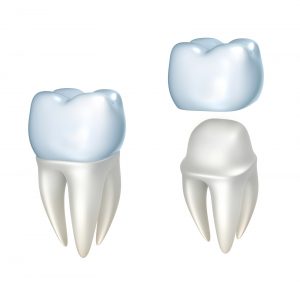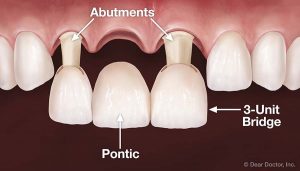Navigating dentist crowns cost can be complex. With prices ranging from $500 to $3,000, the factors impacting cost are as varied as the materials used. If you’re looking for a dentist rockville md, this guide will help you understand how insurance can affect these prices and offer actionable advice to ensure you’re making informed financial decisions for your dental health.
Key Takeaways
- Dental crown costs vary based on material, geographic location, and dentist’s expertise, with material options ranging from metal at $600-$2,500 to porcelain or zirconia at $800-$3,000 without insurance.
- With dental insurance, out-of-pocket expenses for crowns may be reduced by about 50%, but it’s important to understand insurance coverage limitations and that not all procedures may be covered.
- For those without dental insurance, average costs for dental crowns range from $500 to $3,000, and payment options are available such as in-house plans, credit, or dental discount plans to help manage expenses.
Factors Influencing Dental Crown Costs
The costs of dental crowns are not uniform and can vary greatly. The price tag attached to your dental crown depends largely on three factors: the material chosen, your geographic location, and the dentist’s experience and expertise. While these factors may seem independent, they often interplay in the overall cost of your dental crown.
For instance, choosing a material like porcelain for its aesthetic value might increase the cost compared to metal crowns. Porcelain crowns might be competitively priced if your dentist has a specialty in this area and established relationships with dental labs.
Dentists in urban areas might have higher prices than those in rural locations, as they face higher operational costs, including those associated with dental lab services.
Material Choices
Dental crowns, dental implant materials, and dental implants can be made from a variety of materials, including:
- Porcelain
- Metal alloys
- Zirconia
- Specialty materials such as lithium disilicate (E-max)
Each material carries its own set of properties, aesthetic value, and costs.
Because of their natural appearance, porcelain or ceramic crowns are often chosen for cosmetic purposes. However, their price range of $800 to $3,000 without insurance reflects their aesthetic value. Metal crowns, on the other hand, are durable and require less tooth removal but are less aesthetically pleasing, costing between $600 and $2,500 without insurance. Options like porcelain-fused-to-metal crowns and zirconia crowns blend durability and aesthetics but come with a heftier price tag similar to all-porcelain crowns.
Geographic Location
The cost of your dental crown can also be influenced by where you live. Urban centers, known for their higher cost of living and operational expenses, generally have higher costs for dental crowns compared to rural areas.
Market rates in a dentist’s area can influence their practice fees. Regional economic factors are likely the reason why a similar procedure might cost less in a small town compared to a city. It’s not just about the dentist, but also the economic environment in which they operate.
Dentist’s Experience and Expertise
The cost of your dental crown can also be influenced by the dentist’s level of experience and expertise. Just like any other professional service, a dentist with more experience and a solid reputation may charge more for their services.
While cost is a factor, it shouldn’t be the sole basis for choosing a dentist. Conducting online research and reading patient reviews can provide insights into the quality and cost-effectiveness of dental services offered by different dentists. After all, a successful dental crown procedure is not just about affordability. It’s also about the skill and expertise of your dentist.
Dental Crown Costs with Insurance
Determining the costs of dental crowns with insurance can be a unique challenge. Many dental insurance plans provide coverage for 50% or more of the restorative costs, including dental crowns. This can significantly reduce your out-of-pocket expenses.
A thorough understanding of your coverage is critical. An insurance check at the dentist’s office can help you understand what your policy covers. Remember, while comparing fees with other dentists might seem tempting, your decision should not be based solely on price. After all, a low-cost procedure is no bargain if it doesn’t meet your needs or results in additional costs down the line. Tooth crown cost with insurance can vary based on your plan and provider. Many insurance policies cover a portion of the cost, helping you afford this essential restorative procedure
Average Savings with Insurance
So, how much can you save with dental insurance? On average, insurance can reduce the out-of-pocket price of a dental crown by up to 50%, significantly reducing your financial burden.
This means that if a dental crown costs $1,200, you might end up paying only $600 out of pocket. These savings can make a significant difference, especially when you need multiple dental crowns. However, remember that the actual amount you pay can vary based on your specific insurance plan and the dental procedure you need.
Coverage Limitations
While dental insurance has its benefits, it’s worth noting that coverage can have limitations. For example, some policies offer ‘no annual maximum,’ allowing unlimited coverage for qualifying dental care within the policy’s terms. However, cosmetic dental crowns are often not covered as they are considered elective procedures.
Grasping these limitations can help prevent unexpected expenses. It’s always a good idea to check with your insurance provider to understand what is and isn’t covered. This can help you plan for any additional costs that may be required.
Dental Crown Costs without Insurance
What happens if you lack dental insurance? The cost of dental crowns without insurance can vary based on several factors, with the average cost typically ranging between $1,000 and $2,500. While it might seem daunting at first, knowing what to expect can help you prepare financially.
Keep in mind, these figures reflect average costs. The actual cost can vary due to several factors, including the need for additional treatments before the placement of the final dental crown. By understanding these factors, you can better anticipate and manage your expenses.
Average Prices without Insurance
Without dental insurance, the average dental crown cost can be about $1,393, with a typical range from $500 to $3,000 per crown. The price can change significantly based on the material used for the crown.
For example, the cost of different types of dental crowns without insurance are as follows:
- Metal crowns, including gold crowns: $600 to $2,500
- Zirconia crowns: $800 to $3,000
- Porcelain crowns: $800 to $3,000
- Porcelain-fused-to-metal crowns: $500 to $2,000
These prices emphasize the impact of material choice on the overall cost of dental crowns.
Payment Options
Managing the costs of dental crowns without insurance might seem daunting. However, many dentists offer in-house payment plans, accept credit cards, and work with financing providers like CareCredit and Lending Club to help patients cover dental crown costs.
Other options for making dental crowns more affordable include:
- Dental discount plans, which offer lower rates on dental services for a monthly or annual fee
- Dental schools, which often provide more cost-effective dental crown services performed by students under the guidance of experienced professionals
- Health savings accounts (HSAs) and flexible spending accounts (FSAs), which allow individuals to save for medical expenses, including dental crown costs, pre-taxed and can be withdrawn tax-free when used for qualifying health expenditures
These options can help make affordable dental crowns more attainable for those looking to preserve their natural teeth, even without insurance.
Ways to Save Money on Dental Crowns
Apart from insurance and payment plans, various other strategies can help reduce the cost of dental crowns. Some strategies to consider include:
- Taking advantage of membership plans
- Asking for cash discounts
- Comparing dentist prices
- Utilizing in-network providers
By implementing these strategies, you can potentially save a significant amount of money on dental crowns.
While it’s vital to save money, it shouldn’t sacrifice the quality of dental care you receive. After all, a poorly done dental crown can lead to complications that may end up costing you more in the long run. So, while you aim to save, also prioritize getting the best quality care you can afford.
Choosing the Right Material
One way to save money on dental crowns is by considering the crown cost and choosing the right material. While porcelain crowns offer aesthetics and strength, they are priced at a higher range of $800 to $3,000 per crown. On the other hand, composite resin crowns are an affordable alternative, costing between $500 to $1,500 each, but they may require more frequent replacements due to their susceptibility to chipping or staining.
Choosing a durable material can prevent the additional costs and dental work associated with crown replacement over time. By understanding the pros and cons of each material, you can make a cost-effective decision that suits your long-term oral health and financial needs.
Comparing Dentist Prices
Another effective way to save on dental crown costs is by comparing dentist prices. Obtaining detailed treatment plans and estimates from multiple dentists can help you accurately compare costs.
Comparing these plans can help you identify the most cost-effective option that fits your budget and requirements. However, remember that the cheapest option isn’t always the best. It’s crucial to balance cost with quality to ensure you’re getting the best care possible.
Utilizing In-Network Providers
If you have dental insurance, utilizing in-network providers can lead to more affordable out-of-pocket costs for dental crowns. These dentists have agreements with insurance companies to provide services at pre-negotiated rates.
Opting for an in-network dentist can offer several benefits, including:
- Streamlining the insurance claims process, reducing paperwork and eliminating the need to pay the entire bill upfront and await reimbursements
- Potentially lower out-of-pocket costs, as in-network dentists have negotiated rates with insurance companies
- Access to a network of trusted and vetted dental providers
- Assurance of receiving quality care and a positive patient experience
When choosing a dentist, it’s important to consider both the financial aspect and the quality of care provided by in-network providers to ensure you’re receiving the best possible dental care.
Dental Crown Maintenance and Longevity
While cost management is crucial, maintaining your dental crowns for their longevity is equally significant. Proper oral hygiene, regular dental visits, and avoiding damaging habits are essential for maintaining the longevity of dental crowns.
Remember, a well-maintained dental crown can last many years, making it a worthwhile investment. So, once you’ve navigated the cost landscape and received your dental crown, make sure to take good care of it to get the most value out of your investment.
Proper Oral Hygiene
No matter which type of dental crown you choose, proper oral hygiene is key to its longevity and maintaining your natural tooth. Brushing at least twice a day with a soft-bristled toothbrush and fluoride toothpaste, along with flossing daily, are essential to keep dental crowns clean.
In addition to your daily oral hygiene routine, regular dental checkups and professional cleanings are crucial in preventing tooth decay. Regular check-ups allow your dentist to monitor your dental crowns and address any early signs of damage or decay, contributing to the longevity of your crowns and preventing potential root canal treatments.
Avoiding Damaging Habits
Besides maintaining good oral hygiene, it’s vital to steer clear of habits that could potentially damage your dental crowns. For instance, chewing hard foods like nuts, popcorn kernels, and ice cubes can potentially crack or chip your dental crown.
Similarly, habits like clenching or grinding teeth, especially while sleeping, can exert extra pressure on your dental crown and may lead to damage over time. Being mindful of these habits can help you protect your dental crowns and extend their lifespan.
Summary
In conclusion, navigating the landscape of dental crown costs can seem challenging, but with the right knowledge, it’s entirely manageable. Whether you’re considering the material, comparing dentists, utilizing insurance, or maintaining your dental crowns, you have the power to manage your costs effectively. Remember, quality dental care is an investment in your health and well-being. So, while keeping costs in mind, don’t compromise on the quality of care you deserve.
Frequently Asked Questions
Is teeth crowning expensive?
Dental crowns can range from $500 to $3,000 per tooth, with porcelain crowns typically costing between $800 and $3,000, depending on the type of material used. Metal crowns can cost between $800 and $2,500.
Are dental crowns worth the money?
Yes, dental crowns are worth the money because they are a durable long-term option, with a high success rate compared to other dental restorations or no treatment at all.
How long do dental crowns last?
Dental crowns can last between five and 15 years with proper care, depending on the material used and maintenance. Regular check-ups and good oral hygiene can help extend their lifespan.
Are crowns cheaper than root canals?
Root canals are generally less expensive than dental crowns, but crowns may need to be replaced every few years with less maintenance. Consider the long-term costs and maintenance when making a decision.
What is the average cost of a full crown?
The average cost of a full dental crown ranges from $500 to $3,000 per tooth, depending on the material used, such as porcelain, metal, or a combination of materials. Porcelain crowns typically cost between $800 and $3,000 per tooth, while fused to metal crowns range from $800 to $1,400 per tooth, and metal crowns (gold alloy or mix) price between $800 and $2,500.






